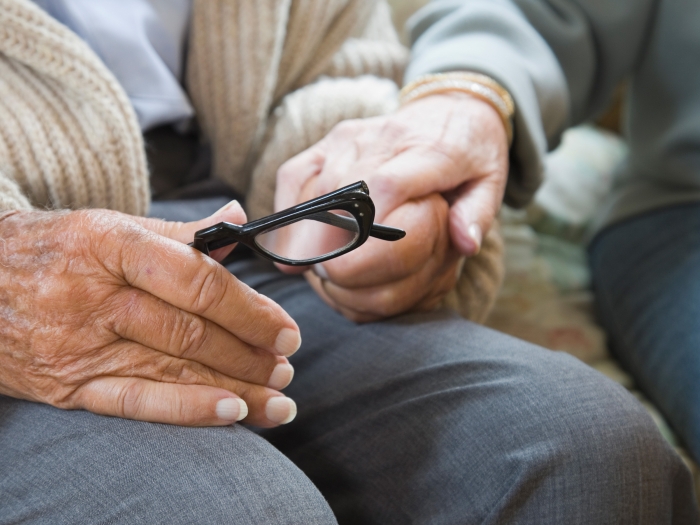The doctor who helped lead Michigan’s response for more than a year reflects on lessons learned.
3:04 PM
Author |
In her first week on the job as the chief medical officer in Baltimore's health department, she had to lead the investigation of a potential measles case.
A couple of years later, she was head of the Detroit health department, and leading response to the largest hepatitis A outbreak in modern history.
So by the time Joneigh Khaldun, M.D., M.P.H., became the state of Michigan's chief medical executive, she had plenty of experience dealing with the communications, data analysis and the collaborative response needed to navigate a public health crisis.
And then came the once-in-a-century pandemic.
From the first days of the pandemic to fall 2021, Khaldun was the top doctor leading the COVID-19 response including testing, treatment, vaccination and contact tracing strategies. She was the public face of the COVID-19 response for many Michiganders, appearing at most press conferences with Michigan's governor Gretchen Whitmer and sharing information wherever she could to help people protect themselves and understand how the pandemic was evolving.
Now, six months removed from that role, she reflected on the lessons she hopes individuals, government agencies, businesses, politicians and academics will take away from it.
Khaldun shared those lessons in a recent talk given at the University of Michigan Institute for Healthcare Policy and Innovation.
She now serves as vice president and chief health equity officer for CVS Health, the nation's fourth largest company by revenue; it owns the Aetna health insurance company; CVS Caremark, a pharmacy benefits manager; and more than 9,000 CVS Pharmacy locations.
In the video above, Khaldun and IHPI director John Z. Ayanian, M.D., M.P.P., discuss everything from lack of COVID-19 test availability in the early days of the pandemic, to the racial, ethnic and geographic disparities that emerged in 2020, to the race to prioritize vaccine supplies in 2021 and the politicization of the pandemic.
Khaldun notes that throughout her career as an emergency physician and public health leader, the under-funding of public health agencies has been apparent. And that's why when COVID-19 arrived in the U.S., many public health department functions were stretched incredibly thin.
Without sustained funding that doesn't ebb after public health crises, "You end up with public health departments with fax machines," she said.
She hopes the experience of the past two years will show elected officials the importance of adequate and steady funding for public health at the local, state and federal level.
She credits university partners, including those at the U-M School of Public Health and Michigan Medicine, with helping the state's leaders and public health teams on critical data analysis and reporting.
She also reflects on the lessons learned about partnering with the private sector, and helping the business community understand that pandemic response and prevention was important for their bottom lines.
The importance of clear and data-driven messaging from public health and political leaders, strong public health communications, and coordination between hospitals also emerged as important lessons.
Khaldun, who got her undergraduate degree from U-M, recalled how her interest in health disparities was fostered in the Summer Enrichment Program in Health Management and Policy at the U-M School of Public Health, which trains undergraduate students who are committed to eliminating health inequalities.
When it came to COVID-19, the differences in how the pandemic affected people of different racial and ethnic groups, income and education levels, and rural, urban or suburban locations didn't surprise her. "You expect disparities to exist. It's a matter of what you do about it," that can make a difference, she said.
Like Podcasts? Add the Michigan Medicine News Break on iTunes, Google Podcasts or anywhere you listen to podcasts.

Explore a variety of healthcare news & stories by visiting the Health Lab home page for more articles.

Department of Communication at Michigan Medicine
Want top health & research news weekly? Sign up for Health Lab’s newsletters today!





